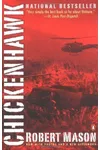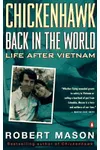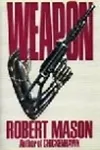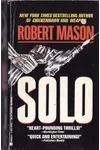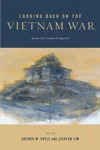Picture a Vietnam War helicopter pilot turned bestselling author, weaving raw, heart-pounding tales of combat and courage—meet Robert Mason! His memoir Chickenhawk catapulted him into literary fame, offering a front-row seat to the chaos of war through a pilot’s eyes. Mason’s journey from battlefield to bookshelf is a gripping story of resilience and storytelling magic.
Born in 1942, Mason’s life is a testament to chasing dreams and confronting demons. His vivid accounts of flying Huey helicopters in Vietnam and his later struggles with PTSD have captivated readers, making him a unique voice in military literature.
The Making of Robert Mason
Robert C. Mason was born in Plainfield, New Jersey, and raised on farms in New Jersey and Florida. As a boy, he dreamed of soaring through the skies, earning his private pilot’s license before graduating high school. After two years at the University of Florida, Mason ditched college for adventure, enlisting in the U.S. Army in 1963 to fly helicopters. By 1965, he was in Vietnam, piloting Huey 'Slicks' with the 1st Cavalry Division (Airmobile), diving into the heart of battles like Ia Drang.
Mason’s year in Vietnam—flying over 1,000 combat missions—shaped his life and work. The intensity of war, coupled with the camaraderie and chaos, became the raw material for his storytelling. After returning home, he faced combat fatigue (later diagnosed as PTSD), which grounded his flying career but ignited his path as a writer.
Robert Mason’s Unforgettable Stories
Mason’s breakout memoir, Chickenhawk (1983), is a visceral dive into the Vietnam War’s helicopter battles. Named after a conversation about the fear and bravery of pilots, the book chronicles Mason’s training, combat missions, and the psychological toll of war. Critics raved, with the St. Louis Post-Dispatch calling it 'the best book so far about Vietnam.' Its honest, unflinching narrative has sold over half a million copies, cementing Mason’s place in military literature.
In 1993, Mason followed up with Chickenhawk: Back in the World, a memoir exploring his post-war struggles with PTSD, job loss, and a dramatic smuggling misadventure that landed him in prison. This sequel is raw and reflective, showcasing his dry humor and self-awareness. Mason also ventured into fiction with Weapon (1989), a thriller about a rebellious military robot, and Solo (1992), its sequel, blending high-stakes action with speculative tech. His writing style—direct, vivid, and emotionally charged—brings readers into the cockpit and beyond.
Mason’s works stand out for their authenticity. He doesn’t glorify war but lays bare its horrors, friendships, and absurdities. His ability to translate the sensory overload of flying under fire—whining turbines, thumping rotors, and the stench of battle—makes his stories unforgettable.
Why Robert Mason Matters
Robert Mason’s impact lies in his unflinching honesty. Chickenhawk is more than a war memoir; it’s a window into the human cost of conflict, resonating with veterans and civilians alike. His portrayal of PTSD helped destigmatize mental health struggles for soldiers, offering a voice to those haunted by war. By blending memoir with thrilling fiction, Mason bridged genres, appealing to readers who crave both truth and imagination.
His legacy endures in the way his books inspire empathy and respect for veterans. Mason’s vivid storytelling has influenced military writers and filmmakers, with Chickenhawk often cited as a must-read for understanding Vietnam’s helicopter war. His courage in sharing both heroism and vulnerability makes him a literary hero.
- Born: March 20, 1942, Plainfield, New Jersey
- Key Works: Chickenhawk, Chickenhawk: Back in the World, Weapon, Solo
- Notable Achievement: Chickenhawk sold over 500,000 copies and earned widespread critical acclaim
Snag Chickenhawk and dive into Robert Mason’s thrilling, gut-wrenching world of war and redemption!
